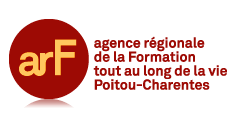 The CSHE conducts the research and policy seminar series Ideas and Issues in Higher Education. These seminars are open to the public.
The CSHE conducts the research and policy seminar series Ideas and Issues in Higher Education. These seminars are open to the public.
Seminars are normally held from 1:00 to 2:00 pm on Mondays at CSHE (Level 1, 715 Swanston Street, Carlton).
People interested in giving a seminar should contact Professor Hamish Coates (hamishc@unimelb.edu.au) with their proposal. Registration enquiries to Molly McKew (events-cshe@unimelb.edu.au) or +61 3 8344 4605).
Online registration below.
Seminar details
Monday 28th July, 1-2pm
The place of private providers in higher education?
Helen Zimmerman
Helen has worked in leadership roles in Australian public and private education for over 30 years. She is currently a senior executive of Navitas Limited, an Australian top 100 Company and global education provider that delivers higher education, English language training and settlement services, creative media education, workforce and professional education, and student recruitment.
Prior to joining Navitas, Helen was Managing Director of the ACL Group of companies, the largest private provider of English language education in Australia. She is President of the International Education Association of Australia and has served on the boards of a number of peak professional education associations and regulatory bodies. In 2010 she was one of five national finalists for the award of Leading CEO for the Advancement of Women.
Helen is a Fellow of the Australian Institute of Company Directors and a director of the Australian Business and Community Network, a national partnership of highly committed business leaders and companies creating business and education partnerships through mentoring and coaching programs.
--------
Monday 11 August, 1-2pm
Evaluating National Systems of Higher Education: Beyond Ranking of Research Intensive Universities
Abstract
The criteria used in the international rankings of universities are distorting national systems of higher education by encouraging all institutions to be comprehensive in scope and research intensive. What matters for a nation is the total system that caters for a range of interests and abilities. The Universitas 21 (U21) annual rankings rate national systems of higher education in 50 countries on 24 attributes grouped into four modules: Resources, Environment, Connectivity and Output. The modules recognise that to be successful a system needs both adequate resources and a favourable regulatory and policy environment.
The absolute performance of a country’s higher education system will depend on the national level of income as measured by GDP per capita. In recognition of this we construct auxiliary rankings that allow for differences in income levels. We also examine relationships between input and output variables and the findings provide guidance for policy makers.
Ross Williams
Gaétan de Rassenfosse
Melbourne Institute
--------
Friday 22nd August, 12:30-2pm
Does Higher Education Make You Think?
Abstract
Higher education is a noble and longstanding enterprise. And yet, curiously, it has not been a particularly self-reflective one. Especially in times of economic or political difficulty, the academic community has been more ready to analyse and campaign about what is being done to it than what it does to itself and to its most important members—its students. All too often we can focus on issues like funding, economic returns on investment, relative institutional prestige and the like, and ignore what tutors and researchers working directly with students frequently hear in interviews: “it changed my life”. This seminar is based on my new book, The Question of Conscience: higher education and personal responsibility (London, Institute of Education Press, 2014). In it I examine several distinct claims about what higher education does to and for students: in existential terms (how students come to be); in epistemological terms (how they think and appraise information); in behavioural terms (how they learn to conduct themselves); and in positional terms (both through competition and collaboration).
Professor Sir David Watson
Principal, Green Templeton College, University of Oxford
--------
Friday 29th August, 12:30- 2pm
What Australia should not learn from UK Higher Education
Abstract
Although Australia became a quasi-independent dominion in 1901 and achieved a more definite national independence after World War 2, the higher education systems in Australia and UK remain similar. At times the two systems almost feel like one. There are also interesting differences, and larger variations in society, history and world geo-context. This seminar will reflect on these patterns.
Professor Simon Marginson
Professor of International Higher Education, Institute of Education, University of London
--------
Friday 17th October, 11am- noon
The world is flattening: Higher education in comparative perspective
Abstract
Higher education, once the preserve of the elite, has become increasingly universal as nations everywhere realized that knowledge workers were needed to compete in the global economy. Borrowing from the American model, public universities expanded to meet the demand. In recent years, however, the norms and forms of the market have become increasingly important. Tuition has increased, competition for students and professors has gone international, for-profit universities enroll an ever-growing number of students. How, for good and bad, are these changes affecting higher education? Reference: Shakespeare, Einstein and the Bottom Line: The Marketing of Higher Education (Harvard 2003)
Professor David L. Kirp
James D. Marver Professor of Public Policy
Goldman School of Public Policy
University of California
 Vendredi 11 juillet, nous organisons une conférence sur le thème : Nouvelles pratiques : Évaluation et Accréditions, de l'AERES vers l'HCERES - PARIS - Salle de conférence de la CPU.
Vendredi 11 juillet, nous organisons une conférence sur le thème : Nouvelles pratiques : Évaluation et Accréditions, de l'AERES vers l'HCERES - PARIS - Salle de conférence de la CPU.








/https%3A%2F%2Fprofilepics.canalblog.com%2Fprofilepics%2F1%2F0%2F1076071.jpg)